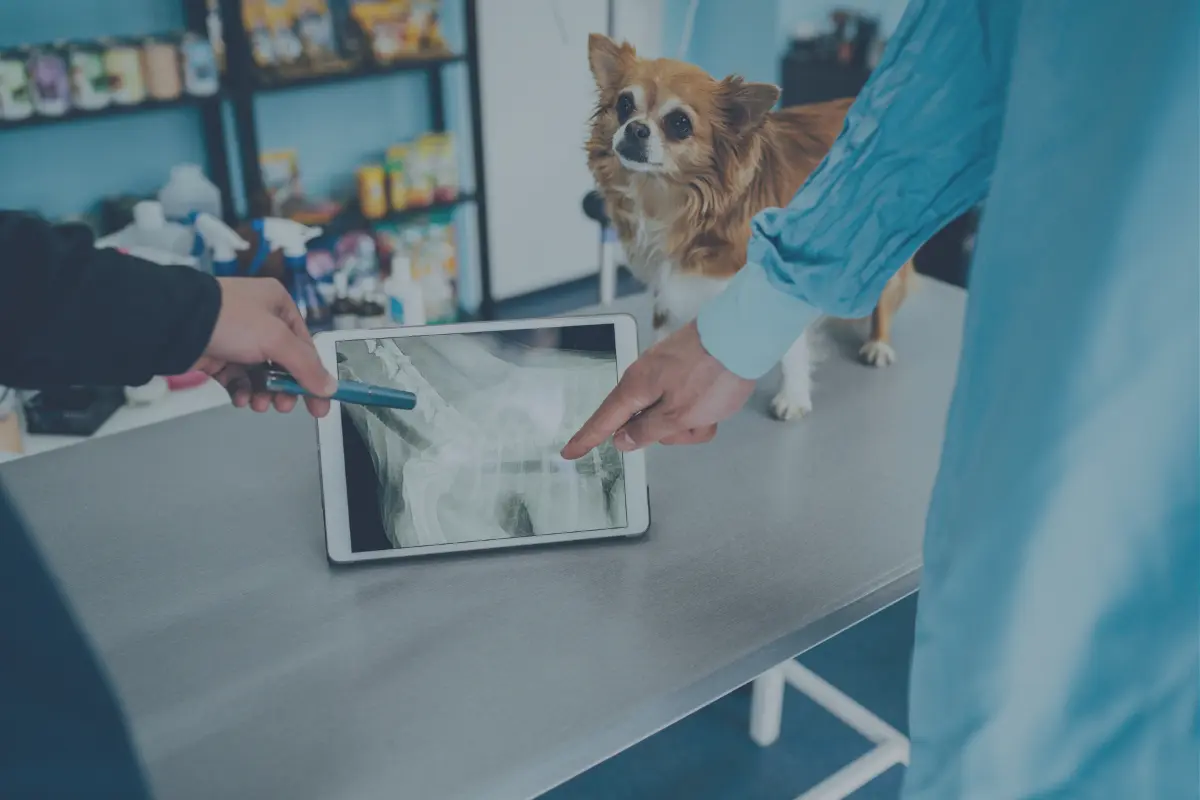
Diagnostics and check-ups are crucial in the treatment process because they reveal the underlying health conditions. Although the symptoms described by the parents give us an idea about the health condition of the pet, the descriptions provided are seldom exact. That is why check-ups are so important and why we advise bringing your pets for regular check-ups at the veterinary clinic.
Animals cannot describe their conditions themselves, which is why vets must employ diagnostic tools and techniques to assess their health thoroughly. At Governors Road Animal Hospital, we use a variety of methods to analyze animal well-being, enabling us to diagnose them accurately and create a proper treatment plan.

At the Governors Road Animal Hospital, we pride ourselves on maintaining the highest possible standard of healthcare. Our methods and equipment are tailored to ensure the well-being of your pets. Additionally, our skilled and compassionate veterinarians take every necessary precaution when dealing with diagnostic equipment and tools.
An effective method of assessing a pet’s physical health is a full-body X-ray scan. It allows veterinarians to see through the pet’s hair, skin, organs, and muscles. The imagery obtained enables the vet to know precisely where the issues exist.
Although accurate, there are specific issues that veterinarians face while working with digital radiology. The X-rays need to be operated multiple times at multiple angles to render the animal’s 3D perspective. Moreover, animals need to be motionless throughout the procedure. That may require the additional usage of lead-gloves and anesthetics to calm the subject and prevent radiation exposure. We strive to provide a calm environment for your dog or cat, enabling us to get the most accurate x-ray reading.
Laser therapy, or “photobiomodulation,” is the use of specific wavelengths of light to create therapeutic effects. These effects include improved healing time, pain reduction, increased circulation and decreased swelling.
Laser therapy can relieve pain, reduce swelling and increase range of motion. Because of this your pet may exhibit renewed energy and freedom of movement. Consult your veterinarian before your pet returns to full activity. A gradual introduction of activity may be suggested to ensure that your pet does not aggravate their condition.
During each painless treatment, laser energy increases circulation, drawing water, oxygen, and nutrients to the damaged area. This creates an optimal healing environment that reduces inflammation, swelling, muscle spasms, stiffness, and pain. As the injured area returns to normal, function is restored and pain is relieved.
During laser therapy the infrared laser light interacts with tissues at the cellular level, and metabolic activity increases within the cell, improving the transport of nutrients across the cell membrane. This initiates the increased production of cellular energy (ATP) that leads to a cascade of beneficial effects, increasing cellular function and health.

On-site blood tests at our hospital are among the most detailed tools used to diagnose your pet’s health problem. The blood samples extracted from the patient can pinpoint existing health conditions since their blood is circulated throughout the body. Blood testing can quickly reveal infections, lack of vaccinations, terminal illnesses, chemical imbalances, pH offsets, red-blood-cell count (RBC), and white-blood-cell count (WBC).
Primarily used to detect kidney issues, urinary tract infections, and diabetes, urine testing offers a way to assess the pet’s body’s condition that is otherwise difficult to analyze. Urine analysis is a useful tool since ailing pets can find it hard to stay still and cooperative while undergoing x-rays or blood tests. Urine itself is easy to access, test and analyze.
Instead of radiation, sonography uses sound waves to assess the inside environment of a living being. High-frequency sound waves are echoed inside the body and used to create imagery of what’s happening inside. The sound is not harmful, and the scan obtained provides useful information. Ultrasounds are commonly employed for pregnancies and to examine blood vessels, organs, tendons, and muscles.